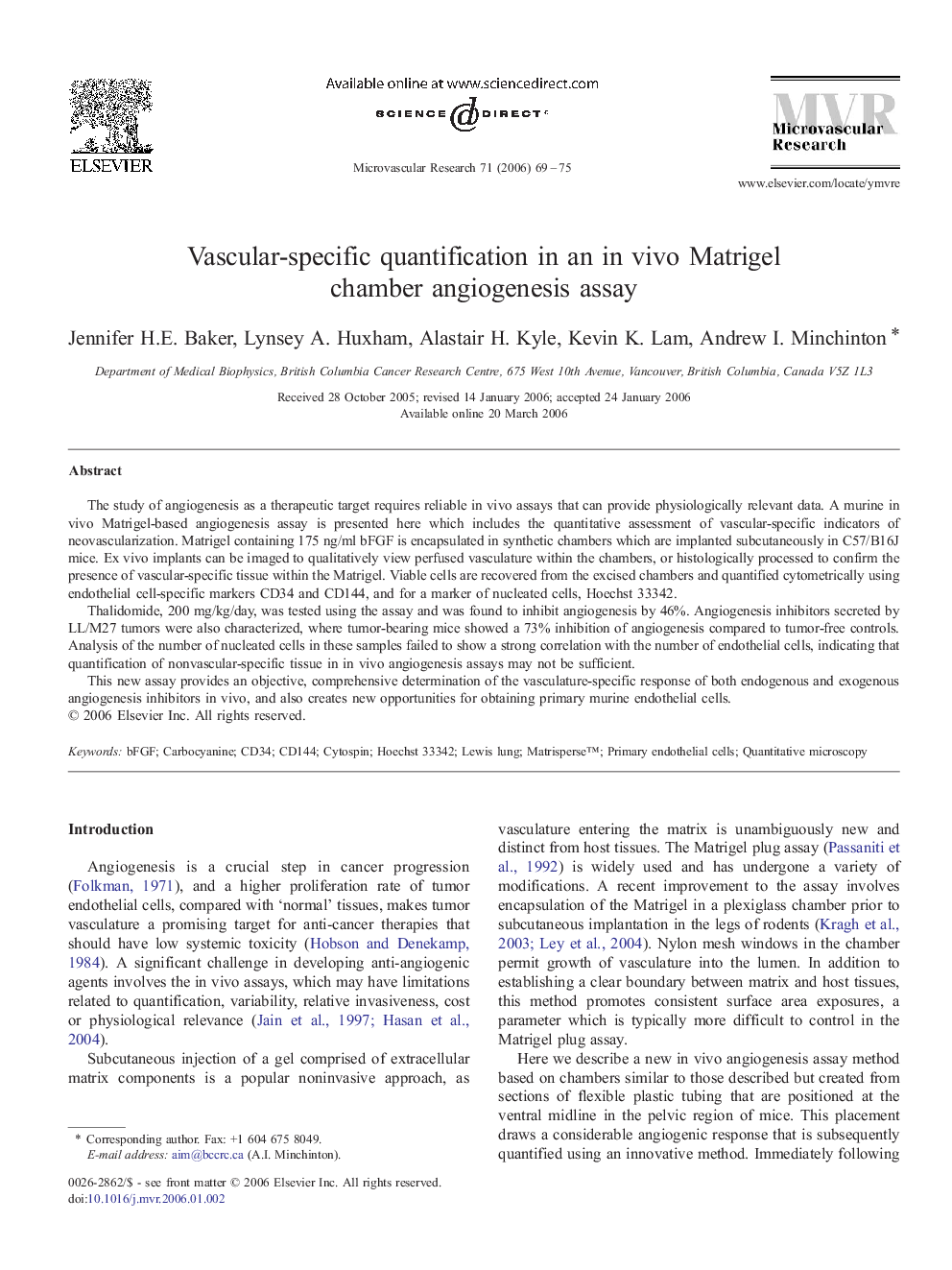| Article ID | Journal | Published Year | Pages | File Type |
|---|---|---|---|---|
| 1995404 | Microvascular Research | 2006 | 7 Pages |
The study of angiogenesis as a therapeutic target requires reliable in vivo assays that can provide physiologically relevant data. A murine in vivo Matrigel-based angiogenesis assay is presented here which includes the quantitative assessment of vascular-specific indicators of neovascularization. Matrigel containing 175 ng/ml bFGF is encapsulated in synthetic chambers which are implanted subcutaneously in C57/B16J mice. Ex vivo implants can be imaged to qualitatively view perfused vasculature within the chambers, or histologically processed to confirm the presence of vascular-specific tissue within the Matrigel. Viable cells are recovered from the excised chambers and quantified cytometrically using endothelial cell-specific markers CD34 and CD144, and for a marker of nucleated cells, Hoechst 33342.Thalidomide, 200 mg/kg/day, was tested using the assay and was found to inhibit angiogenesis by 46%. Angiogenesis inhibitors secreted by LL/M27 tumors were also characterized, where tumor-bearing mice showed a 73% inhibition of angiogenesis compared to tumor-free controls. Analysis of the number of nucleated cells in these samples failed to show a strong correlation with the number of endothelial cells, indicating that quantification of nonvascular-specific tissue in in vivo angiogenesis assays may not be sufficient.This new assay provides an objective, comprehensive determination of the vasculature-specific response of both endogenous and exogenous angiogenesis inhibitors in vivo, and also creates new opportunities for obtaining primary murine endothelial cells.
